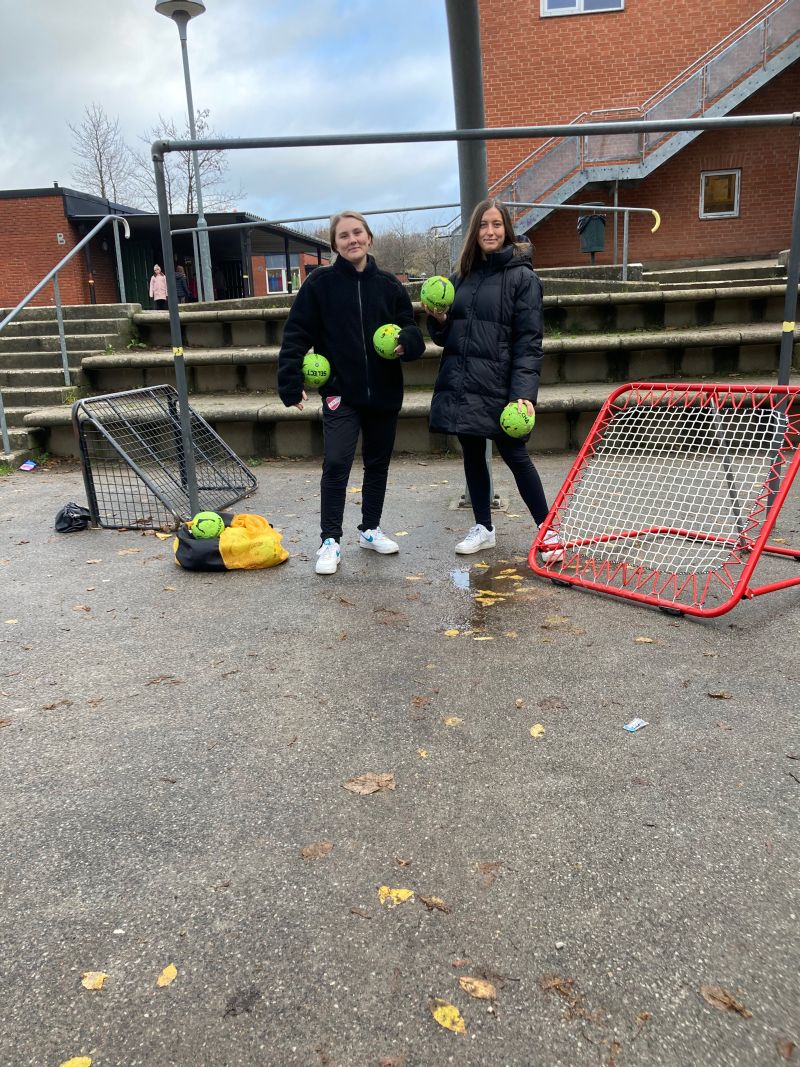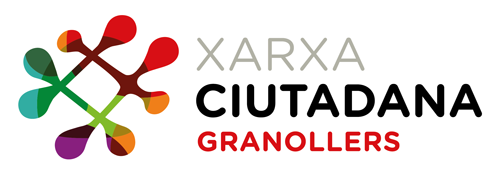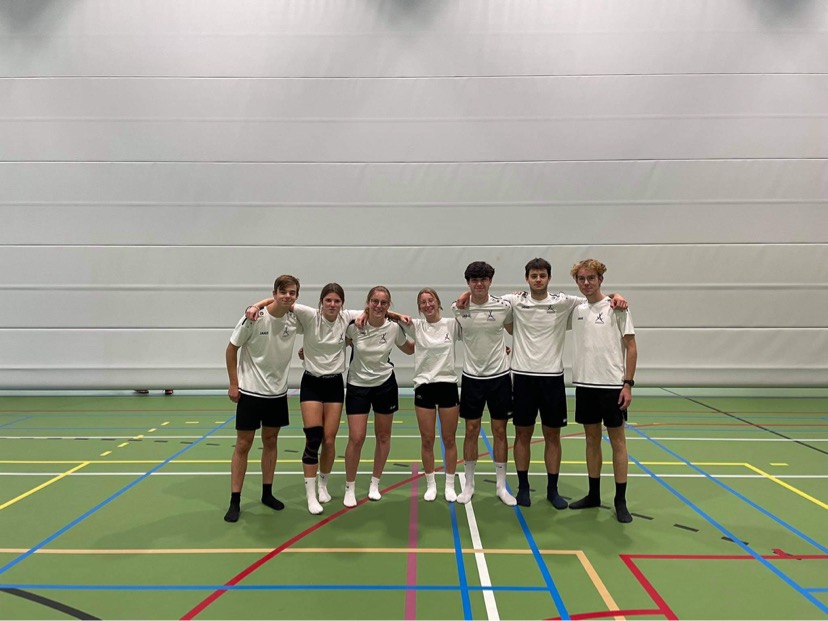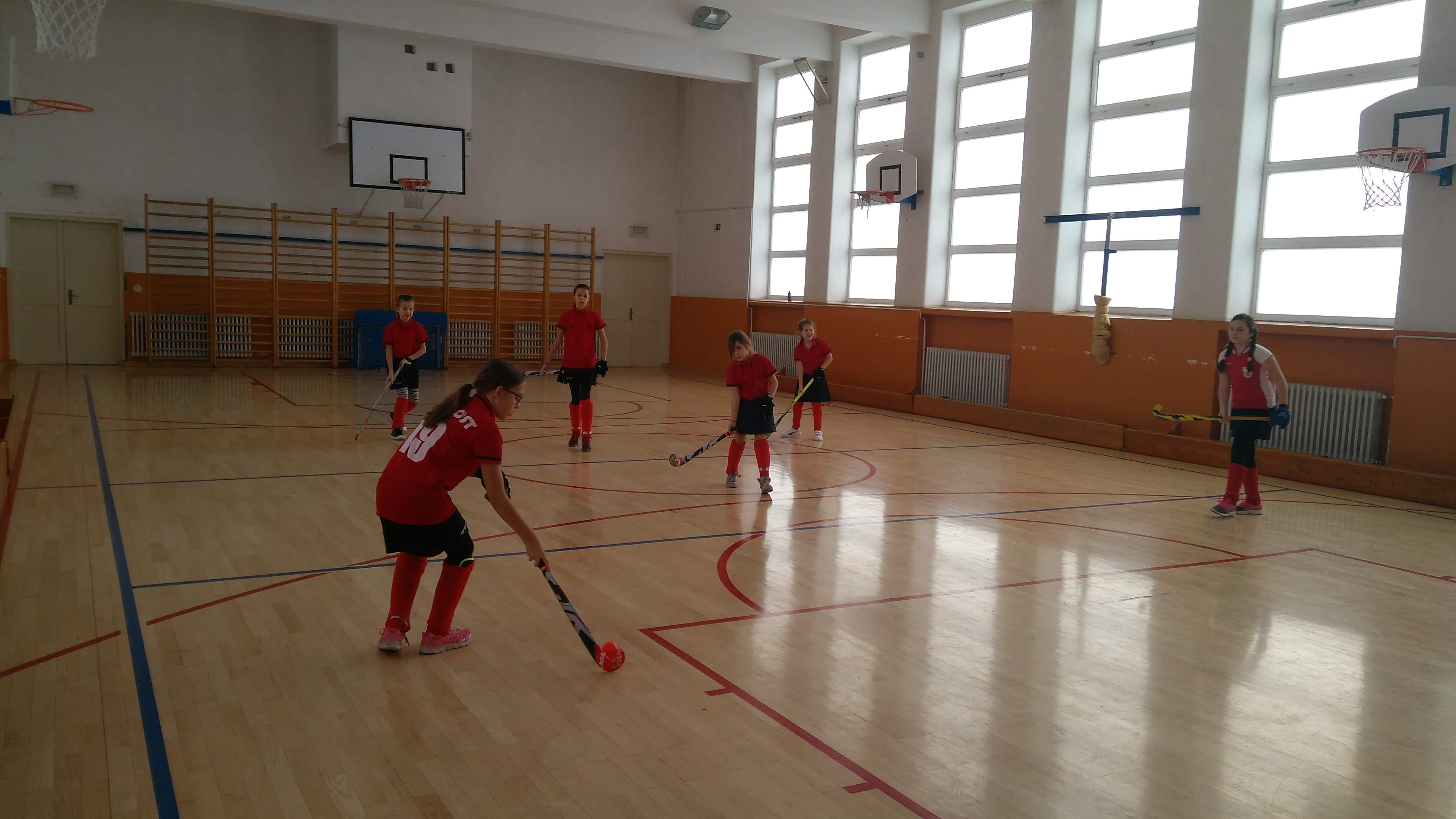At the beginning of September, we started our pilot implementation at Vikingaskolan in Lund. Our main goal is to use handball as a tool to build self-confidence and social skills among children by using the concept of ‘Hand the Ball’. The aim is to trigger the inner motivation in the participants and demonstrate that physical activities are fun and that friendship across age groups, ethnicity, skill levels and backgrounds are possible.
We introduced ‘Hand the Ball’ during the physical education class for the children in the 4th, 5th and 6th grade (age of 10-12 years old). This introduction was followed by activities in the schoolyard once or twice a week during the breaks supervised by our ‘Hand the Ball’ instructors. The instructor plays an important role in ‘Hand the Ball’ by making it an inclusive activity unlimited by the participants age, background, and skill level. The main task of instructors is to motivate and encourage the children to participate in the activities and inspire them to challenge themselves. The instructor always participates in the activities to ensure that everyone is involved and to challenge the participants based on their individual characteristics and skill levels.
The training program consists of individual activities and challenges, activities performed in pairs and other elements done in either smaller or larger groups. The training program consists of coordination exercises, shooting drills, obstacle courses and activities with rebounder and playing elements of street handball. The concept is flexible to the executing environment, amount of people participating, and the equipment being used. The most important component in the activities is the green magical soft ‘goalcha’ ball which encourages participation. All training sessions are developed so everyone is moving a lot and the focus is on the fun parts of the activities, rather than the results.
The outcome of the pilot implementation so far :
After running the project for two and a half months we have noted some difference in the behaviour of the children which we would like to share.
• It is notable that we didn´t attract the same children during the introduction during the PE class as we do during the breaks. The explanation may lie in the fact that there are certain underlying norms during the physical education class that suit some people, while others prefer another environment based on voluntary participation.
• We found it easier to reach the younger children, they are generally more open-minded, while we must work harder to attract the older children, especially girls.
• ‘Hand the Ball’ as a concept feels very appreciated among the children. It is based on inspiration from many different sports and therefore is easy for them to relate to, and they think it is a lot of fun.
• Our presence at the school during the breaks has spread and there is generally curiosity to take part in the activities. Also, children outside our target group have shown great interest in participating.
• The instructor in ‘Hand the Ball’ has an important role as the person who has the power to inspire and affect the children in a positive way. At the same time, he/she has can adjust the exercises and make it an inclusive activity for everyone.
• As the children begin to adopt the concept of ‘Hand the Ball’, they understand that the activities are built on their own engagement, creativity and initiative to challenge themselves and develop the activities together.
• It shows that the children are confident in the context and motivated to contribute, take responsibility, be open-minded and receptive to change and develop. They come up with suggestions on how exercises can be performed and developed depending on the environment and what is available from the surroundings. Some activities can be perceived as organized chaos, which indicates a high level of commitment and great ingenuity by the children.
• Team-spirit has increased among the children, everyone is welcome to participate and are being encouraged to join the activities by the others, regardless of age, ethnicity, or skill level.
• The concept of ‘Hand the Ball’ has had a positive outcome in the everyday activities during breaks in the schoolyard. We have seen a tendency for the children to develop the games differently than before in a more inclusive way to get everyone involved, which is a really positive outcome.
• The joy of the moment is consistent and there is a lot of laughter during the activities. We have found that the children appreciate that we are doing activities with them, and we have noted that the self-confidence of the children is growing. They are interested in showing what they have come up with, or what they (now) can do (after practicing)- which they do with pride.
During the period of the pilot activity, we have engaged with more than 200 children at Vikingaskolan in Lund. In our experience ‘Hand the Ball’ is a great concept to build self-confidence and social skills among children and the key to its success is the role of the instructor and the green soft magical ‘goalcha’ ball.
By using the concept of ‘Hand the Ball’ we contribute to the well-being of the participants by fostering better physical and mental health through sport activities. We shift focus from competition and results to the social and activation element of the game and make it an inclusive activity unlimited by participants’ age, gender, experience, and skill level. We achieve social inclusion and contribute to the welfare of the children by using ‘Hand the Ball’ as a tool.



